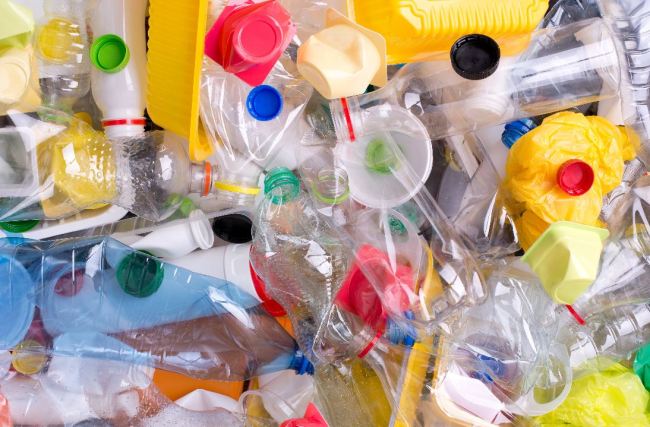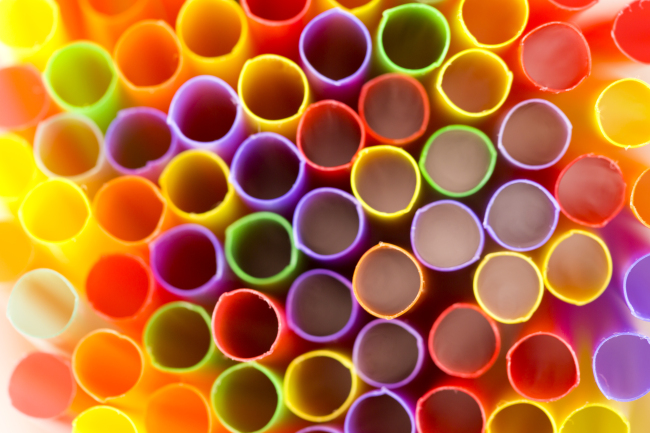[Weekender] Corporate action key to fighting plastic binge
By Son Ji-hyoungPublished : June 8, 2018 - 17:12
South Korea is facing increasing pressure to reduce or recycle its own plastic waste, particularly since China’s plastic import ban that took effect in January this year.
While some countries like the United Kingdom have embarked on state-led measures in a joint effort with local business sectors to ditch plastic, similar measures in Korea face criticism for their lack of binding force and sustainability.
In a speech to mark Environment Day on June 5, Prime Minister Lee Nak-yon echoed a need to increase the rate of recycling, which stood at 8 percent in 2015, partly to offset a 45 percent increase in the volume of plastic waste over the past five years.
While some countries like the United Kingdom have embarked on state-led measures in a joint effort with local business sectors to ditch plastic, similar measures in Korea face criticism for their lack of binding force and sustainability.
In a speech to mark Environment Day on June 5, Prime Minister Lee Nak-yon echoed a need to increase the rate of recycling, which stood at 8 percent in 2015, partly to offset a 45 percent increase in the volume of plastic waste over the past five years.

In Korea, where an individual consumes over 130 kilograms of plastic a year, according to European Plastic and Rubber Machinery, the government has looked to stimulate plastic recycling, avoid overpackaging by online shopping sites and cut consumption and disposal of one-use plastic items like coffee cups.
Through the plan announced in May, the Ministry of Environment seeks to decrease plastic waste by 50 percent and raise the recycling ratio to 70 percent, by 2030, in a nation that is home to manufacturers of electronic devices, automobiles and other plastics-reliant goods.
But the plan relies on local businesses taking action -- ranging from cooperating with government efforts to raising consumer awareness.
Some companies’ actions to decrease the use of single-use products in stores stem from “voluntary agreements” between the Environment Ministry and business entities, which have little binding force.
One example is a policy to force coffee shops to reward customers 10 percent of a beverage price if they choose reusable containers like tumblers over disposable cups. The policy was based on voluntary agreement and participation by coffee chains was mediocre.

Only a few brands -- including Angel in-us Coffee and Lotte Krispy Kreme Doughnuts, both owned by Lotte Group -- currently compensate 400 won (37 cents) for use of reusable cups, in a nation where an Americano costs over $4 on average, and over 6.1 billion single-use cups were consumed in 2015.
Some other retail powerhouses, meanwhile, either chose to return 300 won or lower, even after the introduction of new policy based on the agreements.
Some coffee shop franchises, such as Baskin Robbins Korea, Dunkin Donuts Korea and Ediya Coffee have yet to make an internal decision on the level of reward and the date for carrying out what was made in voluntary agreements, more than a month after the guideline came out from the government.
This sparked local criticism that the government promoted its policy without properly sealing agreements.
Other eco-friendly policies -- including the resumption of a disposable cup deposit system after a ban since 2008, and having companies responsible for disposing of plastic waste -- require a revision of the Act on the Promotion of Saving and Recycling of Resources next year. A disposable cup deposit policy allows customers to be refunded the deposit if they return their used disposable cups.
But corporations do not seem keen to go beyond local rules to implement eco-friendly systems.
When asked about whether it would carry out a plastic use ban similar to that of the UK -- ditching plastic straws in all Starbucks stores starting next year -- Starbucks Korea official said, “We are considering plans to contribute to improving (the environment) in various ways.”
“Consumers have played a limited role in reducing the use of disposable plastic items and the volume plastic waste,” Hong Su-yeol, chief analyst at Resource Recycling Consulting, told The Korea Herald. “If companies already used plastic to manufacture a product, consumers have no choice.”
Hong added an all-out ban on plastic use would be an “absolute way” to protect the environment. But it is highly likely to cause confusion in the production and supply chain system involving small and medium sized enterprises, which had formed since the introduction of coffee here.
Instead, he suggested companies have room for contributing to environmental protection in another form -- raising public awareness.
While the number of coffee shops in Korea surpassed 90,000 in the first half of 2017, customers at the same time became more accustomed to disposable cups, instead of making it a habit to carry tumblers or other glassware.
“Companies in charge of circulating the plastic products should play a lead role in this, because they are primarily responsible for pollution,” he said, while suggesting requiring all clerks or other staff in charge of guest relations to ask customers in Korea whether they want beverages in reusable cups or not.
By Son Ji-hyoung (consnow@heraldcorp.com)






![[KH Explains] How should Korea adjust its trade defenses against Chinese EVs?](http://res.heraldm.com/phpwas/restmb_idxmake.php?idx=644&simg=/content/image/2024/04/15/20240415050562_0.jpg&u=20240415144419)












![[Today’s K-pop] Stray Kids to return soon: report](http://res.heraldm.com/phpwas/restmb_idxmake.php?idx=642&simg=/content/image/2024/04/16/20240416050713_0.jpg&u=)